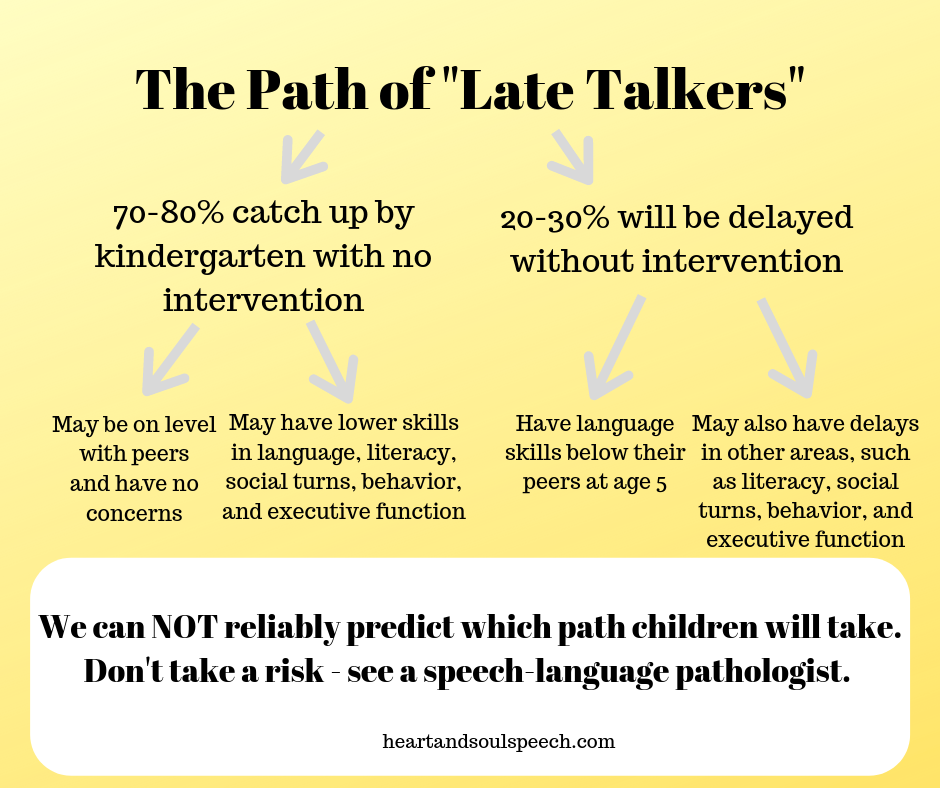A recent TIME Magazine article entitled “Why You Shouldn’t Immediately Worry If Your Child Is a Late Talker, According to a Speech Pathologist,” is potentially misleading and has the risk of causing damage to families of young children with concerns about speech and language development.
Although the author, Dr. Stephen Camarata is a world-renowned Speech-Language Pathologist (SLP), expert in language development, and parent of a child who was unfortunately misdiagnosed early in life, his comments and opinions expressed in the article could disservice caregivers with concerns.
In the article, Camarata failed to include essential research regarding the path of “late talkers” and the risk for delays later in life, even if a child “catches up on their own.” This omission is misleading and may cause concerned caregivers to delay seeking help from professionals in a timely manner.
A child younger than 30 months who has less than 50 words and/or is not combining words together with no other areas of delay is classified as a “late talker.” Research indicates 70-80% of “late talking” children will “catch up” by kindergarten with no intervention; however, they may also be at risk of lower skills in vocabulary and grammar, literacy, social communication, executive function, and present with behavior issues later in life. It’s also important to note, this means 20-30% of “late talking” children will be delayed without intervention. Unfortunately, we cannot reliably predict which path children will take. It’s simply not a risk worth taking.
In the article, Camarata overgeneralizes the “pitfall” of treatment based on inaccurate diagnoses. Speech-Language Pathologists (SLPs) are Master-level healthcare professionals trained to use differential diagnosis, consider the child’s potential for verbal communication, and partner with other professionals to make appropriate treatment plans. Although, we agree children with verbal delays are too often judged using cognitive testing that relies on verbal responses, and professionals should be especially careful to make appropriate recommendations.
Camarata alludes to the importance of differential diagnosis between “late talking” or language disorders and Autism Spectrum Disorder. Additionally, his statements regarding what is proven to not cause late-talking in children, such as poor parenting or vaccinations, are extremely important to note. We also support his encouragement of caregivers asking questions and advocating for your child’s needs.
While Camarata does state “the family [should] get the proper help and begin treatment as soon as possible,” the message is not emphasized clearly throughout the article. Early intervention continues to be proven by research to decrease the impact of future difficulties or lasting effects of delayed language development. Waiting too late may miss the window of opportunity for easier change, increase risk of mental health disorders later in life, result in delayed academic skills and school readiness, and decreased social skills.
Although Camarata’s statements have the potential to be helpful, this article as it is written may cause more harm for concerned parents. Bottom line- if you have concerns about your child’s development, seek help. Do not wait. It’s not worth the risk.
Christian Hancock, M.S., CCC-SLP
Speech-Language Patholgist
Owner of Heart & Soul Speech

